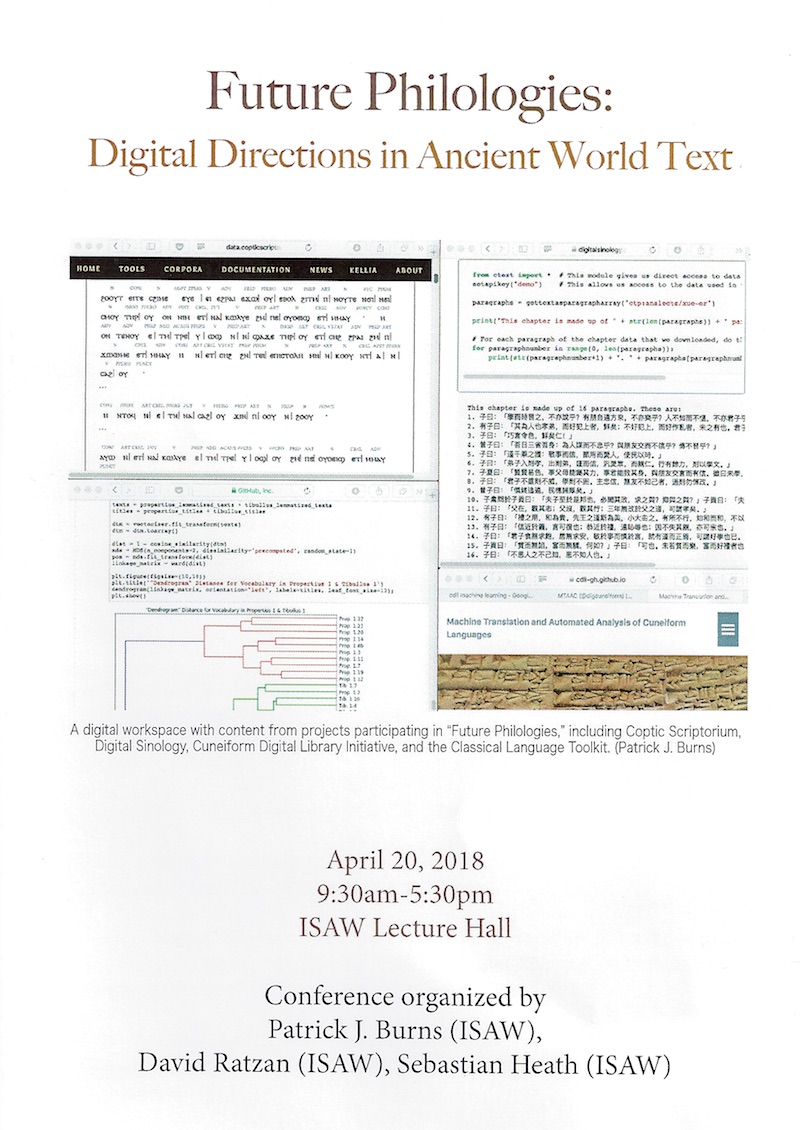Paper presented at Future Philologies: Digital Directions in Ancient World Text, Institute for the Study of the Ancient World, New York University, April 20 2018.
Abstract

Despite a growing interest in digital humanities as a field of study and focus of specialization, significant barriers to the adoption of digital techniques remain within research and teaching in practice in many humanities disciplines. While an increasing number of humanities scholars have demonstrated willingness to invest time and effort in cultivating necessary technical skills, in practice many more are prevented from experimenting with digital methods due to perceived high barriers to entry. One approach to accelerate the adoption of digital techniques is to attempt to reduce the prerequisite technical skills required to apply techniques to research data in practice through the creation of platforms and tools able to bridge technical gaps for some of the most powerful and generally applicable use cases.
With this goal in mind, this talk introduces a suite of browser-based text analysis tools designed for pre-modern Chinese materials and intended to easily integrate into scholarly workflows, including in particular those common in Chinese literature, philosophy, and history departments. Major goals include accessibility of the tools themselves, as well as transparency of their working and ability to introspect the mechanisms underwriting the results and visualizations produced. By enabling rapid exploration of arbitrarily chosen textual materials while also providing insight into the algorithms used, these tools have pedagogical applications in addition to research uses, and are already in use teaching at several institutions.
